The hidden faces of polygamy in Bali (82 min)
Bitter Honey is a feature-length documentary presenting an intimate and emotionally charged portrait of three polygamous families in Bali, Indonesia. Following these families over a seven year period, the film portrays the plight of Balinese co-wives, for whom marriage is frequently characterized by psychological manipulation, infidelity, domestic violence, and economic hardship.
Living in a society where men have authority in many domains, these women have little voice in steering or protesting the conditions of their domestic lives. Bitter Honey draws attention to their struggle, documents the work of those taking steps to better protect and empower them, and aims to trigger a wider conversation about contemporary polygamy and women’s rights in Indonesia.
The Families
Sang Putu Tuaji
Sang Putu Tuaji is a Balinese man in his eighties who has had ten wives, five of whom are still living. Closely related to a Balinese royal family, Tuaji was well known in his younger days as a powerful man whom few people in his village dared to cross. During the 1960s, when Bali was rocked by political turmoil that ended in the massacre of over 100,000 alleged communists, Tuaji was famous as a leader of a local anti-communist militia who, along with his sons, carried out the violent political agenda of the military and paramilitary forces in his neighborhood. He went on to become a village moneylender, earning both the allegiance and fear of those who used his services. Today, his wives and neighbors say that it was all those factors—his royal status, wealth, and a fearsome reputation for violence—that helped him to attract his wives. While some women sought him out for the high standard of living he promised, most of his wives felt that once he chose them, they had no choice but to comply.
I Wayan Sadra
The eldest son of a polygamous rice farmer, Sadra is a Balinese man in his mid-forties with two wives and eight children. With a decent job and a house of his own, Sadra has enough resources to support his large family, but their many expenses put him in a state of constant economic worry. Sadra married his first wife, Ketut, when they were both in their teens, eloping against the wishes of her family. He describes their marriage as having been a good one until they began having children and his wife quit her job, straining the family’s finances. Sadra began secretly dating his second wife, Murni, keeping the affair from his first wife and also lying to Murni, who believed he was unmarried. After Murni became pregnant, Sadra forced Ketut to consent to a new marriage by threatening to send her home to her parents without her children. While Sadra does not believe polygamy to be inherently wrong, he admits to having deceived his wives and having allowed his desires to outweigh the greater good of his family.
“If I didn’t allow him to marry again, I would have been sent home.”
I Made Darma
Made Darma claims he was destined to be polygamous. His father had four wives, and his mother lived through a series of marriages and divorces. After dropping out of high school he married his first wife, Kiawati, and moved in to her family compound. Made Darma found success and prestige in the informal economy, using his size, strength and natural charisma to carve himself a niche as a local tough—running gambling games, supervising cockfights, and providing private security services to local political gatherings. Now in his late forties, Made Darma has few regrets about his polygamous lifestyle. He runs his large household with a firm and sometimes violent hand, rotating his sexual affections among his wives according to a nightly schedule.
“The suffering started when I found out he already had many wives.”
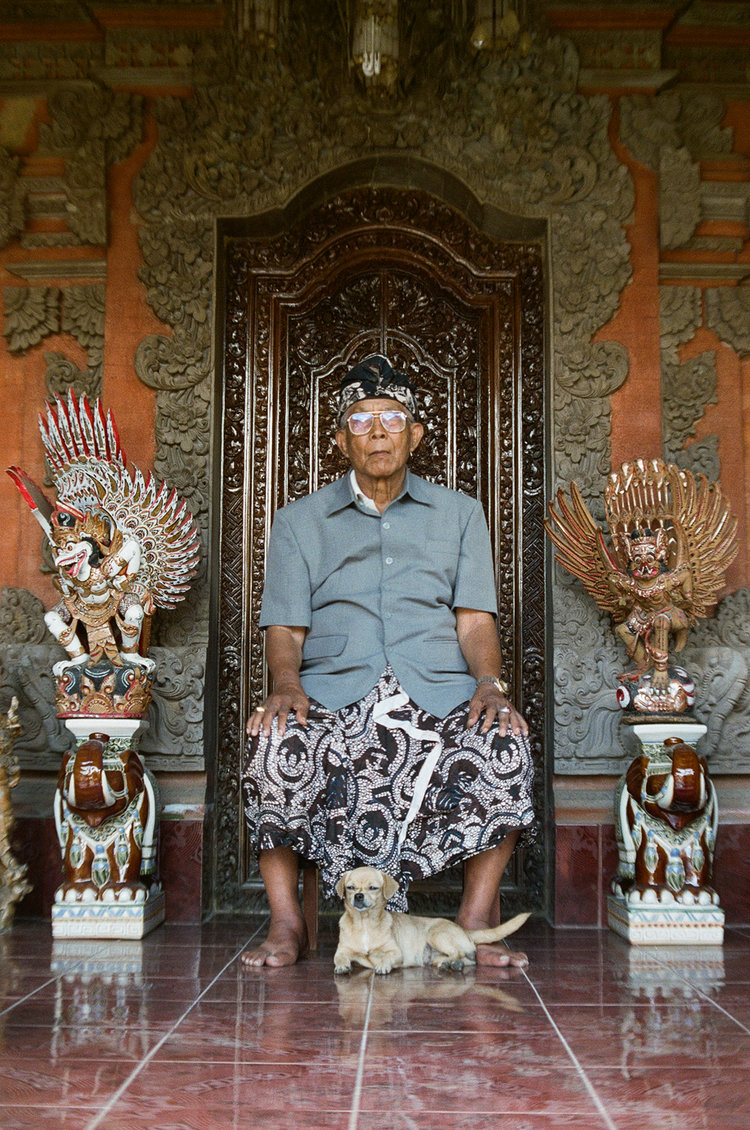
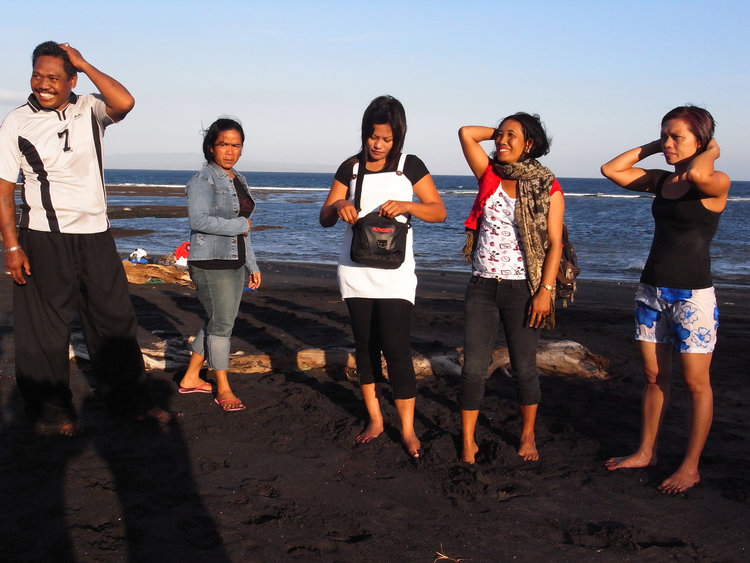
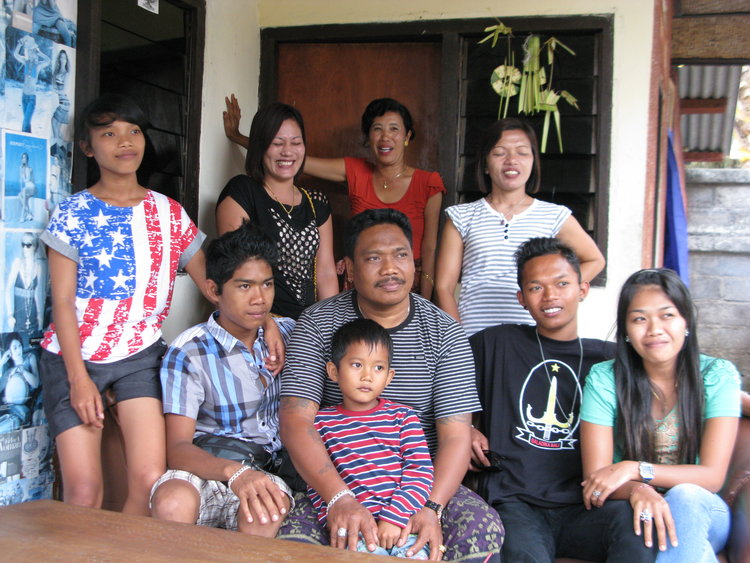
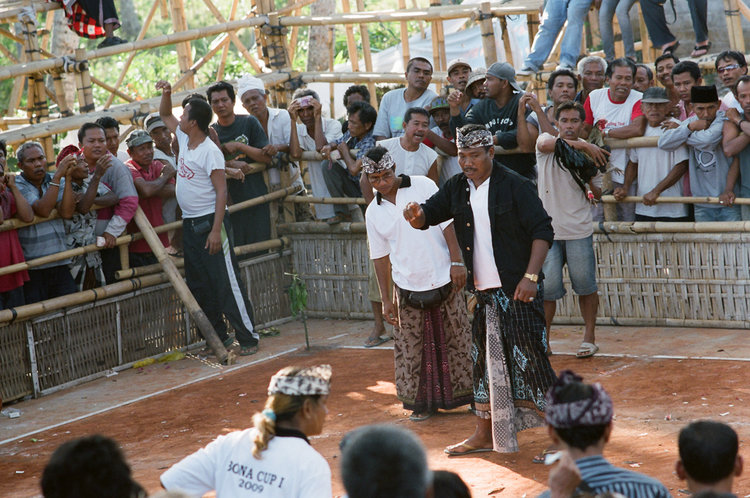
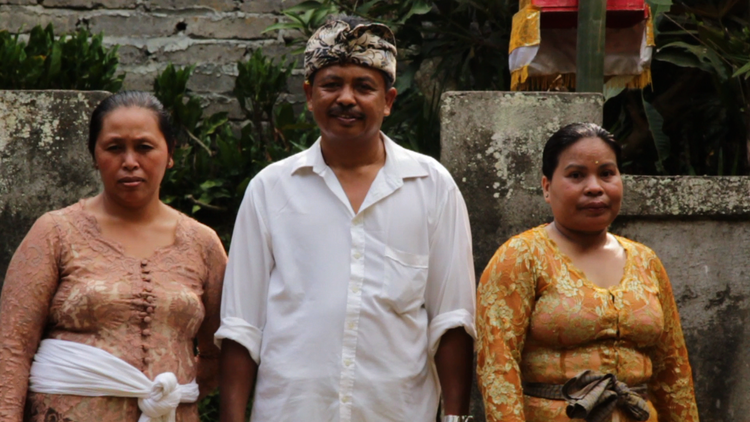
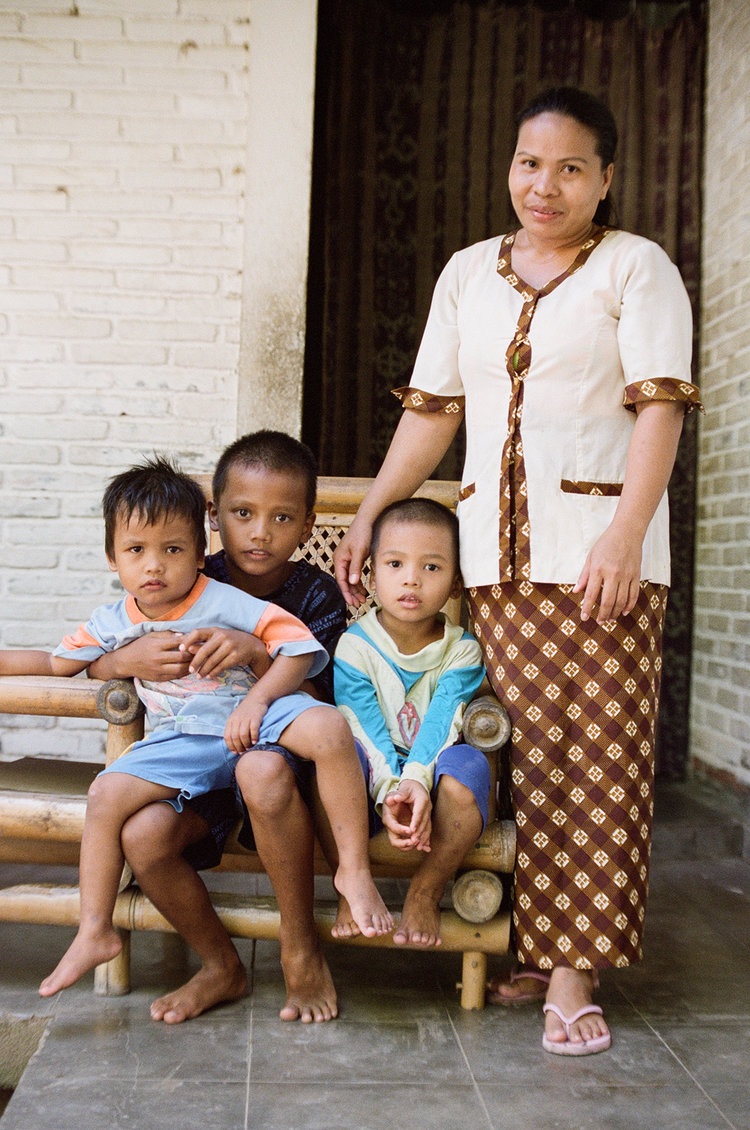
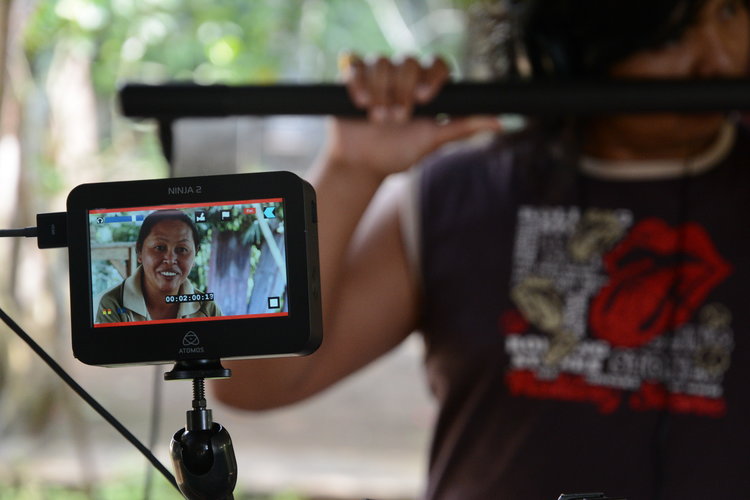
“An expose and call for social reform in Bali, Lemelson offers an eye-opening look behind Bali’s profile as a tourist Shangri-la.”
“Fascinating and undoubtedly important, this is a doc you’ll want to keep your eye out for.”
PPurchase Film
Get Involved
Bumi Sehat
Bumi Sehat Foundation International is a 501(c)(3) nonprofit organization registered in the United States of America. Our mission is to provide access to quality healthcare to families; and kind, hygienic and culturally appropriate childbirth to traditionally under-represented populations. Towards these goals, we provide health services, emergency care, education services and environmental programs. We are devoted to working in partnership with people to improve the quality of life and to build peace - one mother, one child, one family at a time.
Asia Foundation
Indonesia was recently ranked in the top 25 percent in the 2012 Open Budget Survey, which measures budget transparency, participation, and oversight in more than 100 countries around the world. Yet corruption, inequity, poverty, and decaying infrastructure are obstacles to Indonesia becoming fully open and thriving. Our programs strengthen the effectiveness of democratic institutions and legal and judicial systems, empower women’s political participation, and support environmental governance. Learn more about the Women's Empowerment Fund
Cherie Blair Foundation
We welcome contributions in all forms to help us provide the resources, skills and support needed for women to reach the next level – and in doing so benefit not just women entrepreneurs, but their children, families and communities at large. Whether through financial support, volunteering or in-kind donations, every contribution counts. Learn more about the Usaha Wanita Mobile Service in Indonesia
Filmmakers
Robert Lemelson
Director
Robert Lemelson is an anthropologist and documentary filmmaker whose work focuses on the relationship of culture, psychology and personal experience in Indonesia. Lemelson’s area of specialty is Southeast-Asian studies, psychological anthropology and transcultural psychiatry. He is currently an adjunct professor of anthropology at UCLA and a research anthropologist in the Semel Institute of Neuroscience at UCLA.
Alessandra Pasquino
Producer
Alessandra Pasquino has produced broadcast commercials, documentaries and special projects for over 10 years. She has collaborated with many filmmakers and artists including: Oliver Stone, Wayne Wang, Klaus Kinski, Gregory Colbert, Leonardo Di Caprio, Pietro Scalia and Matthew Rolston. She is currently a freelance documentary producer and independent filmmaker.
Wing Ko
Director of Photography
Wing Ko has collaborated with a who’s who of modern artists, musicians and filmmakers. He worked with Spike Jonze on several music videos and edited the pilot for MTV’s “Jackass.” Wing helped create more than 80 music videos for Nine Inch Nails, Soundgarden, Public Enemy and other top bands of the time. For more than 15 years he has traveled around the world and crewed skateboard videos.
Chisako Yokoyama
Editor
Chisako Yokoyama has worked as an editor and assistant editor on studio motion pictures, independent features and narrative and documentary films. Her credits as editor include the English and Japanese language independent films “Saki,” “Takamine” and “Goemon” and as first assistant editor, “American Gangster,” “Memoirs of a Geisha,” “Black Hawk Down” and “Good Will Hunting.”
Malcolm Cross
Music Composer
Cross has been a professional composer for film, television and stage since 1996. He composed the score for “Oh Saigon” a feature-length documentary broadcast on the Sundance Channel. He scored the independent shorts “I Dream of Dog” and “Insomniac,” and wrote the theme and incidental music for the television series “America’s Prom Queen”.
Director's Statement
For the families I got to know, ongoing male domination and control determine the course of women’s domestic, intimate, and economic lives. Yet in this and other ways, polygamous unions are similar to typical marriages. The struggles of polygamous wives are simply an extension of the overall diminished sense of choice and agency that women still experience in many public and private spheres. Yet this film shows that there are potential solutions and tangible ways to improve the conditions that cause women to suffer.
I was lucky to work with a team of Balinese collaborators who advised me in making this film. We hope that it accurately portrays the complexities of the lives of these families. For Balinese viewers, film screenings with activists have already spurred discussions amongst women about their options and the opportunities for empowerment and positive change in their lives. For others it will offer a window into a world rarely seen, or seen accurately, by outsiders.
I have been making documentary films in Indonesia for almost twenty years. After I made a film about the mass killings that occurred there in 1965-66 I began to investigate political brutality, in particular the horrific mass rapes that occurred during the 1998 economic crisis and the fall of the Suharto regime. Realizing that this episode of violence was only one piece of the larger puzzle of gender inequality in Indonesia today, I began to interview a number of women who had suffered domestic violence or abuse. Some of these women were Balinese and a number of them turned out to be part of polygamous families.
I overcame some initial hesitance to start a project about polygamy because, trained as an anthropologist, I was reluctant to portray a kind of marriage that certain audiences might judge negatively. But I soon realized that the emotional stories these wives have to tell held a powerful message about the relationships between men and women and the ways social rules and structures can put women at a disadvantage—or even trap or subjugate them.
Festivals
Days of Ethnographic Film, Ljubljana, Slovenia, 2015
FIFEQ, Montreal, Quebec, 2015
AAS Film Expo, Chicago, 2015
ETNOFILM, Croatia, 2015
RAI International Festival of Ethnographic Film, Bristol, UK, 2015
Tiburon Film Society, Sausalito, CA, 2015
Taiwanese International Ethnographic Film Festival, Taipei, Taiwan, 2015
RAI International Festival of Ethnographic Film at USC, Los Angeles, 2016
Theatrical Screenings
October 3-9, 2014 - The Regent Theater, Los Angeles, CA
October 17-23, 2014 - Presidio Theater San Francisco, CA
October 24-30, 2014 - Apple Cinemas Freshpond, Boston, MA
October 31-November 6, 2014 - IFC NY Theater, New York, NY
October 31-November 6, 2014 - AMC River East, Chicago, IL
November 7-13, 2014 - West End Cinema, Washington, DC
November 13, 14, 15, 2014 @ 7pm - Gateway Megaplex, Salt Lake City, Utah
November 30, 2014 @ 4:30pm - Hollywood Theater Portland, OR
Screenings
UCLA Mind, Medicine and Culture Group, Los Angeles, CA, 2012
Asia Society, New York, NY, 2014
Clinton Global Initiative, NY, 2014
Conferences
Society for Psychological Anthropology Biennial Conference, San Diego, CA, 2013
Hampshire College, Amherst, MA, 2013
Future of Monogamy and Nonmonogamy Conference, Berkeley, CA, 2015































